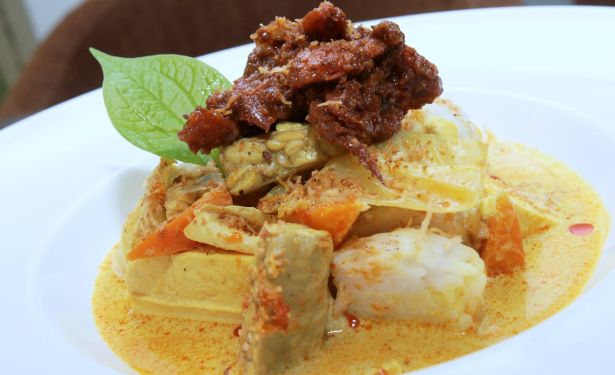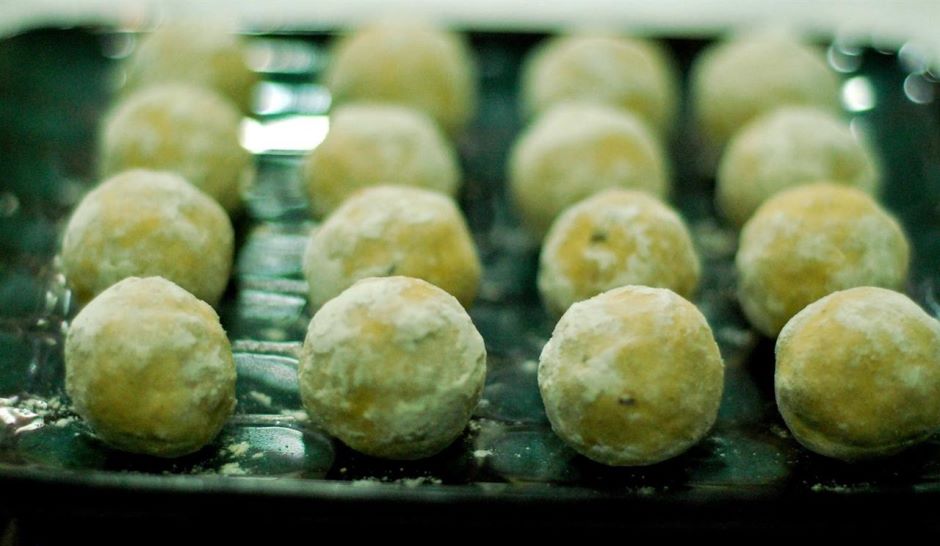Singaporean crooner Imran Ajmain waxes lyrical about his favourite food for breaking fast and Hari Raya.
AS far as Singaporean crooner Imran Ajmain is concerned, his Hari Raya celebrations won’t be complete without lontong, sayur lodeh and rendang. But the one dish that tops the charts for him is roti kirai, his family’s version of roti jala complemented by side dishes of chicken curry, egg salad and peanut sauce.
Imran, who made his presence felt in the Malaysian music scene with his hit song, Seribu Tahun and two albums, Dengan Secara Kebetulan and Punca Dan Tindakan, was in Kuala Lumpur recently for the launch of his latest single Di Kalung Kasihan at the Hard Rock Café.
Surveying the expansive buffet line at Melting Pot Cafe appreciatively, the versatile singer, songwriter, composer and producer reveals that his biggest weakness is spicy food, especially sambal and nasi Padang.
Helping himself to grilled seafood, Portuguese fish with spicy sauce and Chef Abbas’ signature nasi briyani, Imran admits he enjoys coming to Malaysia because it gives him a chance to sample the wide variety of good food here.
“When I travel, I don’t mind trying different cuisines. I can’t stomach strange stuff though so don’t ask me to try innards, offal, tripe, chicken feet, gizzard or snails. I love eating vegetables especially ulam, fresh raw herbs with sambal. The only vegetable that strikes fear in me is bitter gourd,” he says with a hearty laugh.While Imran doesn’t observe any dietary taboo, he usually avoids eating two to three hours before a performance.
“I just don’t have the appetite, possibly due to pre-show nerves, but it’s a good, preventive measure to protect my voice,” says the dashing crooner.
“I tend to eat more following my post-show adrenalin rush. I quit smoking a year ago and my taste buds have become much sharper now and whatever I eat tastes much better.”
Relishing a piece of botok-botok (steamed fish paste with local herbs wrapped in banana leaves) with gusto, Imran reminisces that his best childhood food is bol kentang – potato balls made by his mother.
He elaborates: “It’s her take on the Middle Eastern falafel. She’d stuff mashed potato with minced beef or chicken, shape them into balls and then fry them. Once cooked, we eat them with a chunky tomato-based gravy. It’s a painstaking dish to prepare so I always look forward to eating it.”
Although Imran only has time to cook occasionally, he can rustle up a mean dish of aglio olio spaghetti or pasta with garlic and seafood when necessary.
“You’d find me carting an ample supply of lobsters and assorted seafood back home to cook whenever I perform in Sabah.”His subsequent foray to the buffet saw him returning to the table with a steaming bowl of sup kambing (mutton soup).
“This soup is a customary staple for our family buka puasa dinner,” Imran enthuses.
“Every year, my father insists on breaking fast with this hearty soup so my mother or grandmother will make sure they prepare a big pot. Then they’d just add more meat, vegetables and other ingredients into the leftover broth. This would continue for the whole month, making the soup richer and more complex with each passing day.
“That’s why I would always associate sup kambing with a taste of home and my beloved family.”








